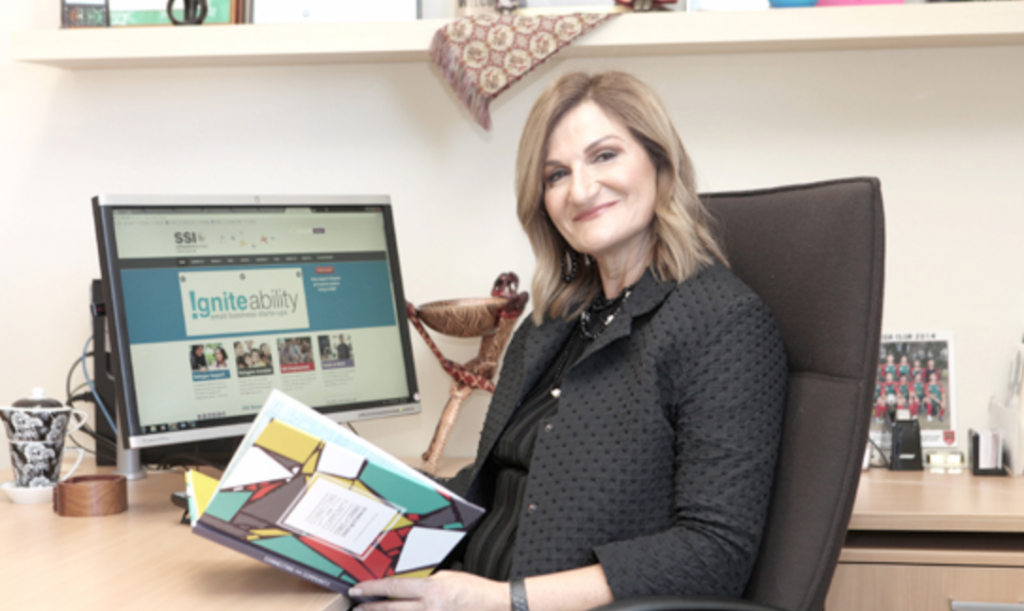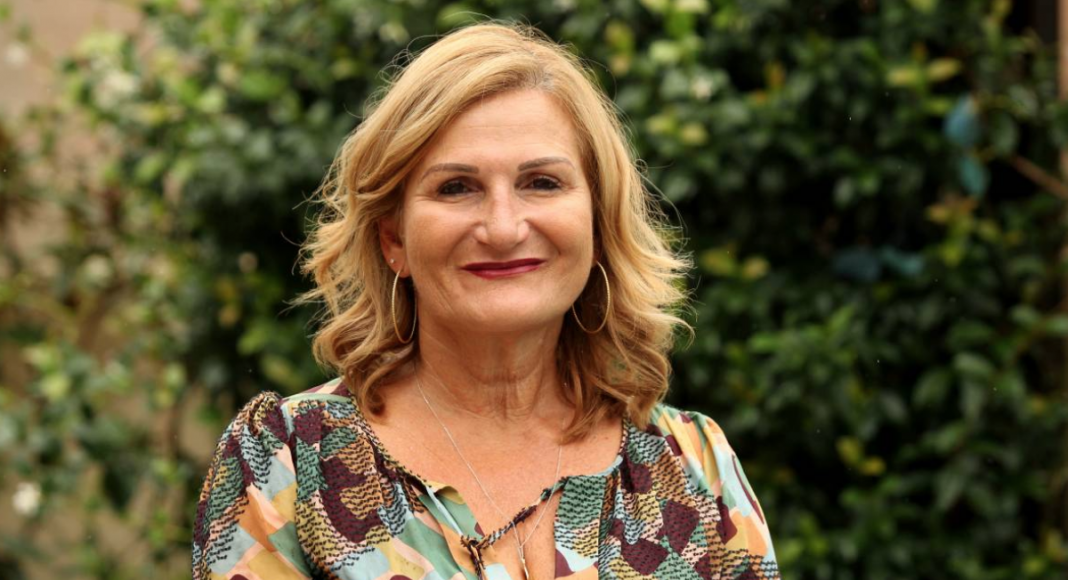On Australia Day 2020, January 26, Ms Violet Roumeliotis received the highest honour an Australian citizen can be awarded – the Order of Australia Medal (OAM).
Violet Roumeliotis is no stranger to honorary awards. In 2017, she was named NSW Telstra Woman of the Year for the Purpose and Social Enterprise Award, which is open to owners or employees of organisations that deliver positive social/environmental change as their core mission. Violet has been the CEO of Settlement Services International since 2012, which is a NSW-based not-for-profit organisation that provides support services to refugees through economic empowerment. She has also received the Impact 25 Award twice (2015 & 2016) by Pro Bono Australia, for being in the top 25 most influential people in Australia’s social sector, as well as being named AFR’s Top 100 Women of Influence for 2018.
Throughout her career, she has led a number of organisations dedicated to human services, which led to her being awarded an OAM for significant service to the community, particularly to refugee support.
Receiving an OAM
Violet considers all her achievements a reflection of her individual impacts on peoples lives.
“I believe that every recognition that comes to somebody is special and has its own merits and opportunities. I am as grateful to be acknowledged by a small community group in a local organisation as I am for an Order of Australia medal,” said Violet. “For me it is about the impact that you can have and the lives that you can change. What I am excited about is the opportunities that might come from this award.”
She does recognise that the OAM will create more opportunity for the work she does, and the people she represents.
“It is unfortunate, but a reality, that an award such as this opens doors. A person such as myself who has had many opportunities through my career still has limitations in which corridors I walk, which doors I open and which boardrooms and offices I am invited into,” said Violet. “This Order of Australia medal will provide opportunities for new networks, very distinguished and diverse. I hope these networks will be able to cascade down into the broader networks, communities and colleagues that I work with every day and provide for opportunities that normally would not be open to them.”
In saying this, she does not shy away from addressing the pain many associate with Australia Day. While she confirms the pride and honour she feels for receiving this award, she also acknowledges that it is a day of sorrow for many.
“I do feel proud and deeply honoured to be an Australian of Greek heritage receiving an Order of Australia medal,” said Violet.
“It is not lost on me that the day that the Australian Honours are announced, January 26 is a date that means different things to different people,” she continued.
“For me, January 26 is a day of ambivalence, because of our country’s inability to come to terms with its history and unify with our First Nations people. How can we celebrate a day of national unity when it excludes so many?”

The Greek impact on philanthropy
“As I sat in the kitchen the day that I told my mother and family that I was going to receive this award, on my kitchen wall was my father’s medal that he was awarded as captain of the Greek National Army during the civil war, he was injured during battle and recognised for his bravery. My father passed away in his sleep in 1990 when he was 64 years old leaving a big gap in our lives. He was a man of great value and integrity who always thought of the common good, and my mother who is now in the twilight of her life is enjoying seeing her children and grandchildren build a positive cultural, spiritual and political identity in Australia,” says Violet.
“We are connected to our country of birth, but also to our Greek heritage and I have great gratitude to have received this honour.”
Violet considers this award particularly special, not only because she will be able to hang her medal right by her father’s, but because being recognised as an honorary Australian from Greek decent is an achievement that no migrant could have anticipated when travelling to this country all those years ago.
Violet recalls her parents journey from Greece to Australia in the 1950s, which resembled an entire generation of migrants who came here “in search of a better life”. Violet’s parents, along with this migrant generation, worked hard to establish strong foundations that their future generations could build off. Their work ethic was never based off greed, but the constant motivation for the success of the future.
“As a little girl, growing up in Western Sydney and watching my parents build their family, their business and their community with many others. My parents mortgaged the family home to build the first Greek Orthodox Church in Bankstown, they had such resilience and enthusiasm about the future aspirations for their children and then, the opportunities that were afforded to us through public education, which allowed us to move into careers that we chose and that we had an interest in,” she said.
“Growing up in that thriving environment where the values were to always give back, and consider the common good, it wasn’t always pleasant and happy. I saw and witnessed a lot of racism and disadvantage, but the core values were one of optimism and hard work that paid off,” said Violet. “I think these were the underpinnings that led to my career in the sector and into the social justice area.”
“My Greek heritage provided a strong foundation of pride with centuries of continuous history, tradition, culture, education and philosophy in the arts and sciences. Being able to visit Greece and see the Acropolis and the Parthenon and go to visit the Parthenon Museum my heart swells with pride. Still today when I visit Greece my eyes tear up when I see the vision of the Acropolis and yet I still have a great sense of identity as an Australian woman,” said Violet. “The beauty of our unique terrain of our multicultural and diverse population. I believe that is what contributed perhaps to being able to work with a diverse range of people in community – always seeing people not difference, always wanting the same thing, to be respected, needing the same thing – a sense of purpose, a job, a home, feeling safe and secure.”
Passion comes from loving what you do
Violet considers herself “one of the luckiest people in the world” to have had the upbringing she had, which allowed her to channel her passions into the workplace.
“I had a lot of passion about social justice, and it’s an area of work that I have been able pursue. Almost 40 years now, I have been very clear about my purpose and values, and I have been able to apply them on a day to day basis in the different organisations I have worked in,” said Violet.
“We do want to feel that we spend our time on things that nourish and rejuvenate us as well, but you have to have a career that has purpose. It is a myth that in order to have a career with purpose you need to work in a not for profit or work with vulnerable communities in some way. The reality is that no matter what you do whether an accountant, an office manager, or even a social worker, we can all use our time at work to advance the common good. It’s about actually having a purposeful career, and applying our values and influence in a positive way day to day in our work with our colleagues and doing it in a way the bring joy and purpose.”
“I have been able to build and be surrounded by extraordinary people with the same mission and purpose as me. We had a vision and a passion for a better world, and you can do nothing more but be inspired when you go to work and you see people who have had extraordinary trauma and challenges and they still have resilience and wake up every day and think ‘today will be a better day’. This country is made up of people like that, people who have come to our shores, worked hard and participate economically, socially and culturally and have given their all. That makes me feel motivated and passionate every single day.”
